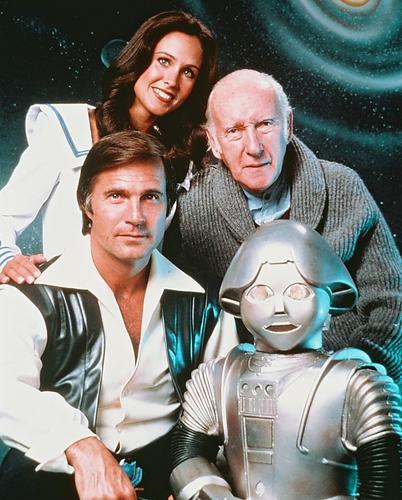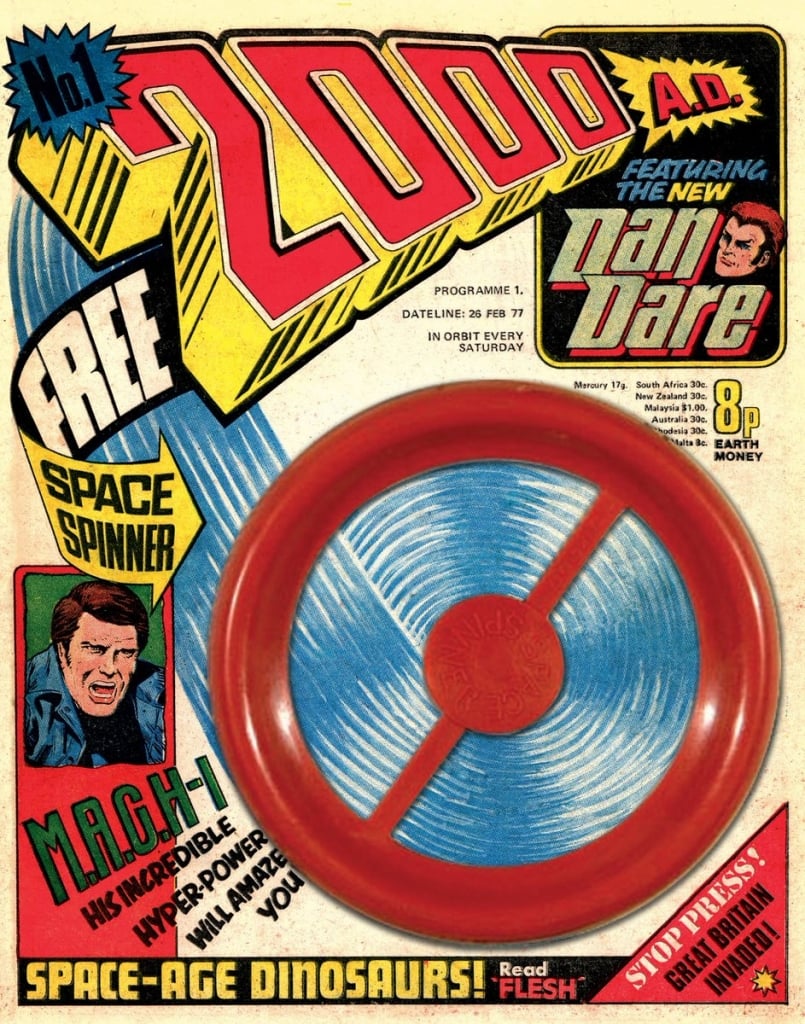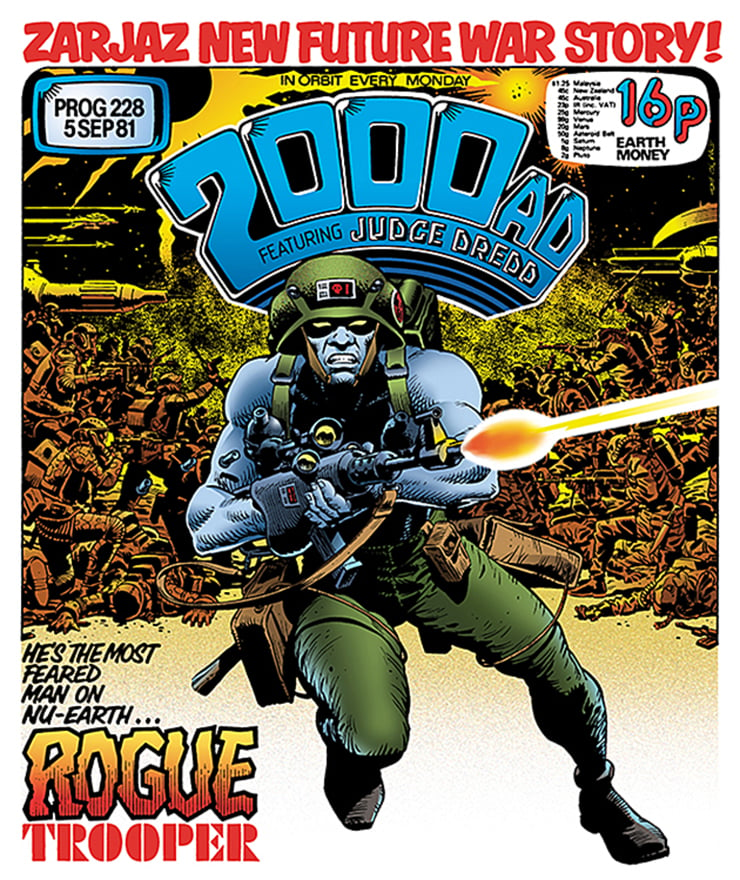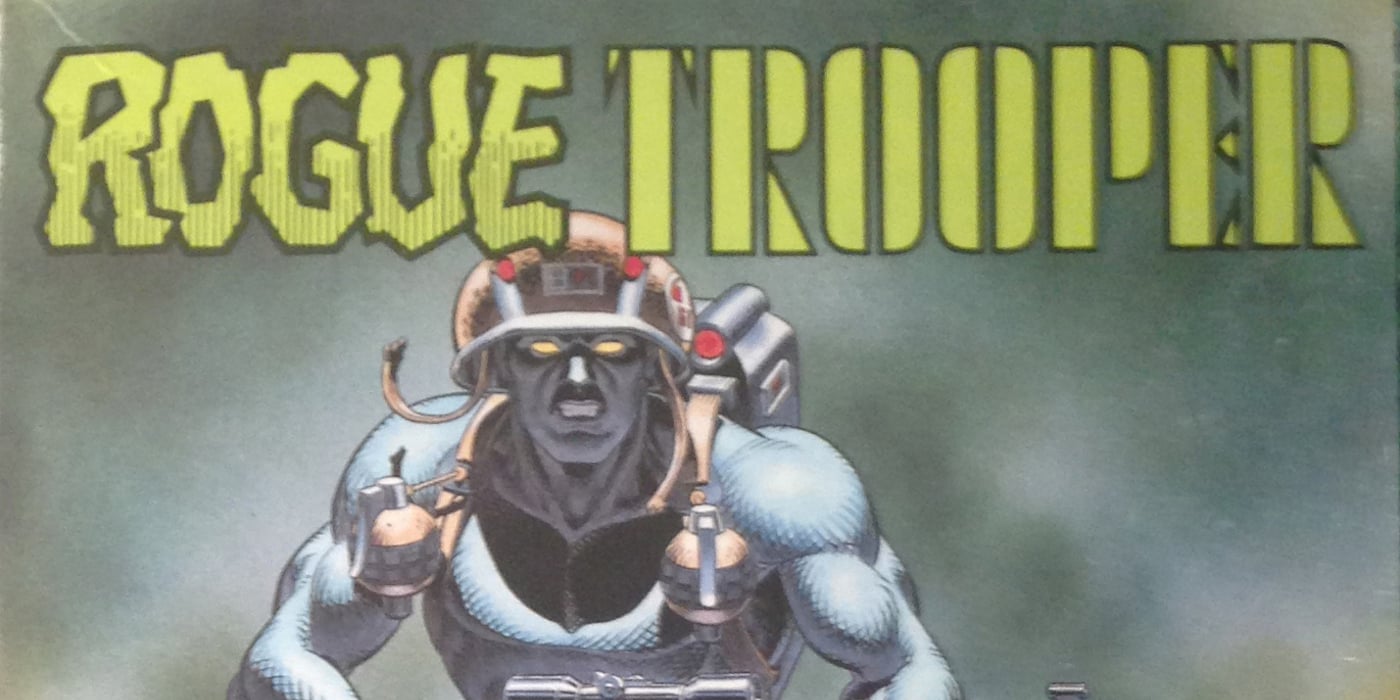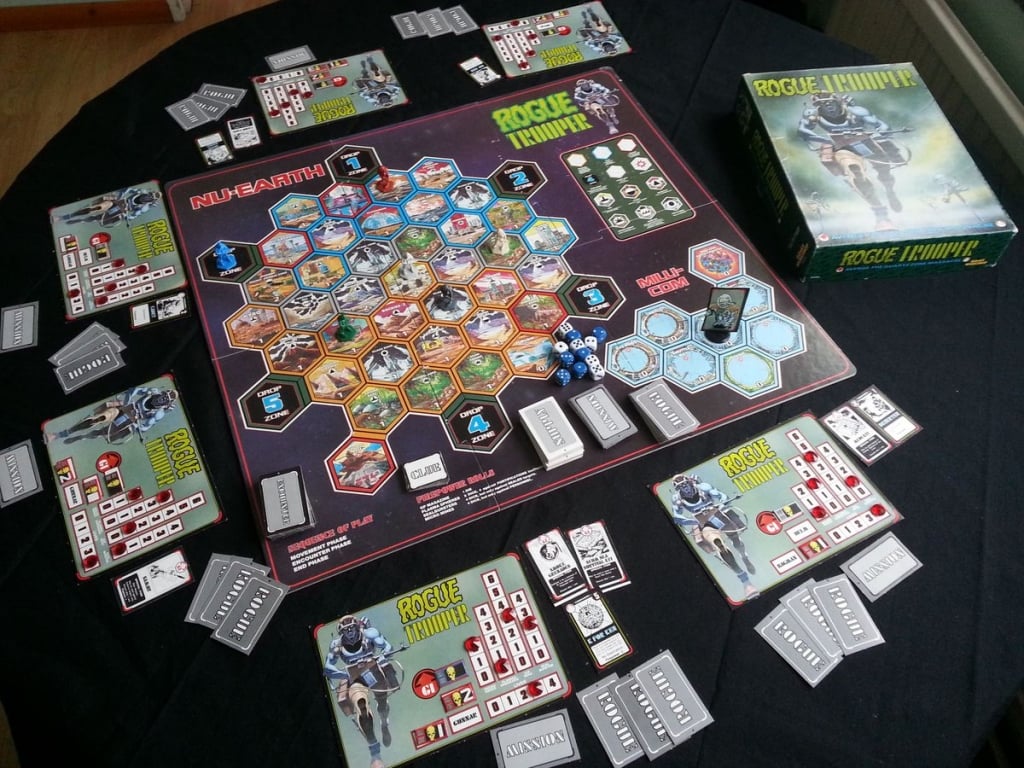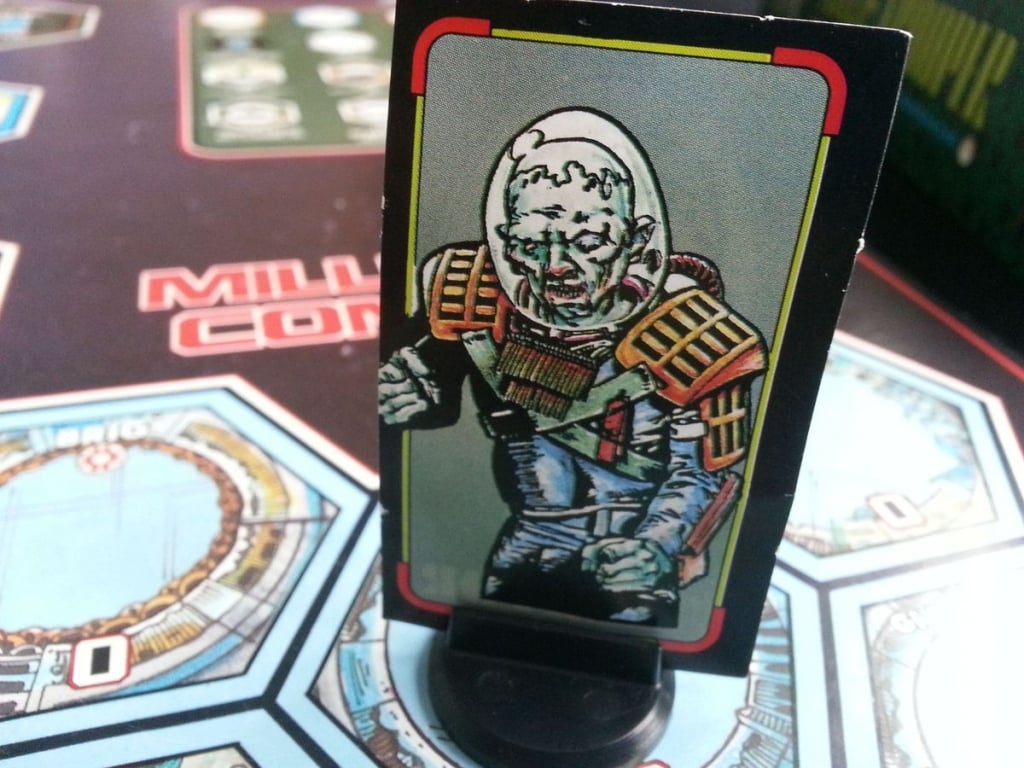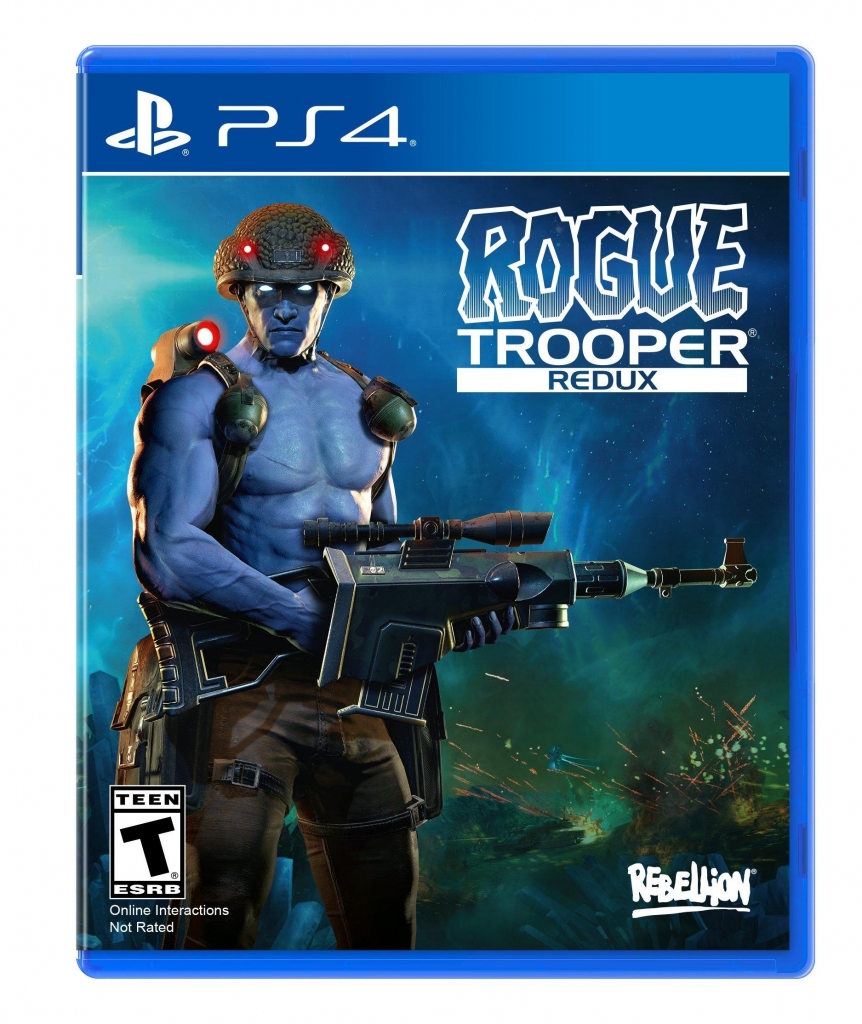Rogue Trader distinctly labeled itself as Warhammer 40,000 to separate itself from Rogue Trooper, but then GW made Rogue Trooper. It’s all very confusing.
You don’t see them as much anymore, but not too long ago, dystopian sci-fi/fantasy universes roamed free. Their dark and gritty exteriors only barely masked the underlying even more dark and gritty of their interiors.
This is the only Gritty I care about anymore.
Back in the ’70s and ’80s, sci-fi universes were a dime a dozen, and there were only so many names to give things! This would be like having a sprawling space opera set in an incredibly detailed universe with well-laid-out cultures and people, each with an established, intertwined history; then copying it, and a couple of story points, and pretending you didn’t just copy nearly all of the groundwork they laid out for you.
It’s a shame they couldn’t get Mark Hamill for this cast photo
Anywhoozle…
A Little Bit of History
Okay, follow me for a minute.
Starting in 1977, the UK had a pulp comic called 2000 AD, which primarily featured sci-fi stories.
Pick any one section on this cover, and there are still several questions to be had about it.
Fast forward to 1981, where the comic held a reader’s poll to determine what sort of stories would be published. Future war was a leading choice, so Gerry Finley-Day was tasked with coming up with something, and he did! Alongside editor Steve MacManus and artist Dave Gibbons, Rogue Trooper was born. If the name Dave Gibbons sounds familiar, it should. He’s got quite the bibliography.
Rogue Trooper was a story about a “Genetic Infantryman” of Nu-Earth who was hunting down the traitor who betrayed his regiment. One of the main elements of the story was biochips. Each of these chips has the personalities of fallen compatriots downloaded into it and could speak and help out when needed.
How no one thought Rogue Trooper might overlap with Judge Dredd is beyond me.
Alright, so Rogue Trooper is a hit, and everyone loves it. Then along comes Games Workshop. It’s 1987, and they’ve recently designed a new tabletop game loosely, and they don’t know what to call it. I guess no one was a big UK comic book reader, and they called their new game Rogue Trader. It wasn’t until later that someone said, “Isn’t that kind of similar to Rogue Trooper?”.
Here we have a recording of a 1980s luminary offering advice on how to differentiate both games’ titles.
To avoid any confusion (too late), Games Workshop subtitled their game “Warhammer 40,000″.
Then, to cause additional confusion, in that same year, Games Workshop published the Rogue Trooper board game. I don’t know how they got a hold of the rights to it, but I think they bought it up just to annoy me. So, they had to change the title of their game to differentiate it from a story that they later ended up producing the game based on. Simple.
Gameplay
To fully understand the game, let’s understand the story first. Like the rest of this article, it’s pretty simple.
On Nu-Earth, whose atmosphere is so lethal that only Genetic Infantrymen can withstand it, the Rogue Trooper is the sole survivor of the Quartz Zone Massacre, where the Norts, along with a traitorous Souther, were able to kill all but one of the Genetic Infantrymen. Now that Genetic Infantryman is the Rogue Trooper and is hunting down the traitor who helped mastermind this evil scheme against the Southers.
Despite the rest of everything we’ve talked about today, the gameplay here is mostly pretty simple. Each player is seeking to be the first player to discover the identity of the traitor, then hunt them down and kill them.
Subscribe to our newsletter!
Get Tabletop, RPG & Pop Culture news delivered directly to your inbox.
The game plays out over a number of missions, which will have you trekking across the planet, dealing with various encounters. These encounters can be overcome through dice rolls, with aid from your items, weapons, companions, and other various resources. Each completed mission grants a Clue card. Once a player has collected all the Clue cards, the traitor appears and must be hunted down.
Whichever player is the first to kill the traitor wins the game!
You might be surprised that it took anyone this long to guess this guy was the traitor, but I applaud them for not judging anyone by their appearance.
Final Thoughts
Overall, Rogue Trooper is pretty good. Granted, it’s very similar to a lot of the other games that came out around the same time. So take that for what it’s worth.
Still, It does bring some new ideas, like having to complete missions for Clue cards. Regardless, there’s a lot of randomness here, with the die rolls and with hoping you draw the 1 Clue card you need. There are official rules for solo play, which just puts the game on a turn timer. I’m a big fan of solo play, so that’s always good.
Also, apparently, Rogue Trooper is still going strong. Good on you, Rogue Trooper!
Don’t Miss:
Matt has loved games of all kinds his whole life: board, video, war, roleplaying, and card. He’s worked as a writer for BoLS since 2017.
Read more at this site


